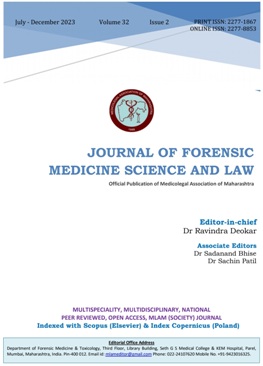Authors |
Priyanka Vandana Sukesh Pande, Ranjit Immanuel James,Muthukrishnan, Latif Rajesh Johnson, Satya Raj, Mona M. Baskerand Other Collaborators |
Abstract |
The Protection of Children from Sexual Offenses (POCSO) Act, formulated to deal with all forms of sexual offence against children, was notified on November 14, 2012. POCSO Act is gender neutral, in that crimes committed against children will be governed by this act regardless of their gender. Reporting of abuse to Police is mandatory under this Act. The Act has laid down child-friendly practices to mitigate the consequences of reporting child sexual abuse (CSA), especially the associated social stigma. The Act prescribes for special courts, expedited trials, provisions to prevent secondary victimization of the survivor and ensuring confidentiality. Upon a cursory glance, the POCSO Act may seem like the ideal legislation to protect children from sexual offences. Unfortunately, our experiences from managing survivors of CSA have revealed a different truth. The harsh reality is that investigating authorities often blatantly disregard protocols, causing secondary victimization. These authorities sometimes fail to consider health issues and the long-term consequences, like sexually transmitted infections, pregnancy, and post-traumatic stress disorder. Survivors and their families feel frustrated with and alienated from the criminal justice system. We present here a series of 4 survivors of CSA, highlighting their plight after experiencing an adverse life event and discuss the relevant review of literature. Though POCSO act is a comprehensive law addressing the huge public health malady of CSA, there is scope for amending the law based on evolving medical and social research.
|
















